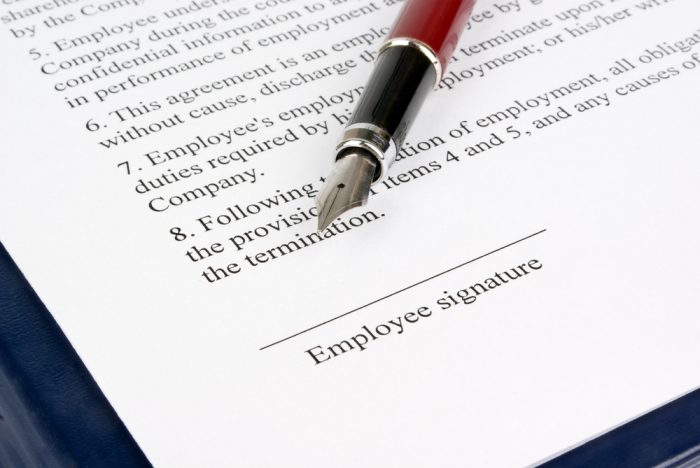Get in touch 0117 325 0526
Get in touch 0117 325 0526

Settlement agreements are often used to agree an end to an employment relationship in an amicable way. There are all sorts of reasons why an employer might offer an employee such an agreement. Regardless of the reason why, under a Settlement Agreement, an employee agrees to waive any claims against their employer. They will usually, but not always, receive compensation in return. The Settlement Agreement will also deal with non-financial issues, such as agreed references.
The employee must have received independent legal advice on the terms and the effect of the settlement agreement for this waiver to be valid. Given that the employer is getting the benefit of the waiver, they would usually meet or contribute to the cost of the legal advice. However, the actual level of contribution varies considerably.
How much do employers commonly contribute to an employee’s legal costs?
Most employers provide a contribution to an employee’s legal fees. The amount may reflect the employee’s seniority, the complexity of the exit or, often, their “standard” contribution. Contributions from employers very enormously. We regularly see employers offering a contribution which is woefully inadequate and out of date. Some employers try and offer a mere £250 + VAT towards legal advice. It would be fair to say this was the standard figure 10-15 years ago! More common are contributions of £350 + VAT but even these are very out of date. In these cases, we always urge the employee to ask their employer for a more appropriate figure.
How much should employers be contributing?
Back in the heady days of 2019, the Employment Appeal Tribunal (here if you want a little light reading) discussed employer’s contributions to settlement agreement costs. They concluded that £500 + VAT was the least an employer could be expected to contribute towards an employee’s legal advice, to cover a basic level of advice, explaining the terms & effect of the settlement agreement. It did not however reflect legal advice beyond this basic advice such as:
Whilst it could be argued that some of the points on that list should really be for the employee to bear (we don’t disagree), settlement agreements are increasingly being used as a ‘quick fix’ to circumvent any sort of process. We often hear that a settlement agreement came ‘out of nowhere’ with little or no evidence from the employer for the exit. We are well-aware that a settlement agreement is often expedient. In that case, our view is that the contribution to the cost of legal advice from the employer needs to be fair and appropriate – the employee should not be short-changed on the opportunity to get legal advice and fully understand the terms of any agreement and their options. Employers often forget that settlement agreements are voluntary!
We now find ourselves in 2023 and even a contribution of £500 + VAT by an employer is on the low side. An amount in the range of £550-600 + VAT more accurately reflects the real cost of 2 hours of a lawyer’s time. This is the average time required to advise the employee on the “terms and effect” of the Agreement, to get the agreement reviewed, agreed and signed. We’d urge employers to update their documents and legal fee contributions accordingly.

5.0/5